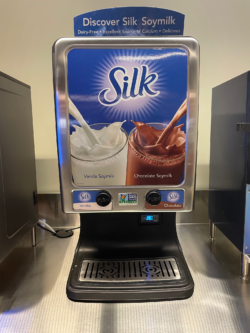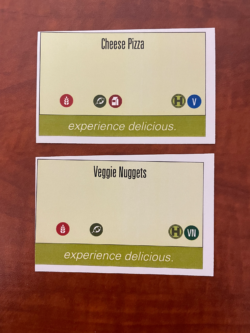Plant-Based Nutrition Tips
Written by Ashley Myers, Dietetic Intern
Individuals choose to become vegetarian or vegan for many different reasons. There are many different types of vegetarians but being a vegetarian usually involves following a plant-based diet that emphasizes vegetables, beans, nuts, seeds, whole grains, and fruits and excludes the consumption of meat, poultry, fish, and seafood. Most vegetarians still include eggs and dairy products in their diet, but it depends on the person. Vegans also follow a plant-based diet and they differ from vegetarians due to the fact that they do not consume any ingredients produced or wholly or partly derived from animals. This means they do not consume any meat, poultry, fish, seafood, eggs, dairy products, honey, lard, whey, or gelatin due to these being byproducts of animal agriculture.
Food is a basic necessity that is needed for life and each food provides the body with different nutrients, vitamins, and minerals. Each nutrient is important and plays a role in the human body. Certain nutrients are only found in high amounts in specific foods which is why it is important to have a balanced diet that includes a variety of different foods. Since both vegetarians and vegans focus on a plant-based diet and eliminate animal products from their diet there are a few nutrients of concern that are important to be aware of. The nutrients of concern for this population are B12, Iron, Calcium, Zinc, and Protein. These nutrients are found in other foods but in lower amounts compared to animal and dairy products, so it is important to include these foods in your diet often and in larger quantities to make sure you are meeting your needs.
Vitamin B12
Why B12 is important:
- Needed to produce healthy red blood cells, make DNA, and prevent anemia
Foods with B12:
- Fortified cereal, nutritional yeast, and fortified dairy alternatives such as soy milk and almond milk
Iron
Why iron is important:
- It is a crucial component of red blood cells
Foods with iron:
- Beans, broccoli, tofu, raisins, and fortified cereals

Calcium
Why Calcium is important:
- Needed to build and maintain healthy bones and teeth
Foods with calcium:
- Dairy (vegetarian) dark leafy greens, tofu, fortified cereals, soy milk, and almond milk

Zinc
Why Zinc is important:
- Plays a key role in the development of our immune system
Foods with zinc:
- Beans, nuts, soy products, and whole grains
Protein
Why protein is important:
- Builds, maintains, and repairs healthy skin, bones, tissues, organs, and muscles
Foods with Protein:
- Dairy & Eggs (vegetarian), Nuts, seeds, tofu, lentils, whole grains, and quinoa
If you are finding it difficult to eat these due to not liking them or never being able to find them it might be beneficial to consider taking a supplement, but it is recommended to speak with your doctor first.
How to eat navigate the dining halls/eating at NC State
As a vegan or vegetarian it might be a little overwhelming when first trying to eat at the dining hall. You want to ensure that you are consuming a variety of foods and that the food you are eating is following your dietary preferences. NC State has a couple of systems set in place to ensure that you know exactly what you are eating.
- Every food item in the dining hall is labeled with icons indicating different “traits”. Both vegetarian and vegan have their own icon that students can look for when ensuring that the food they are eating is following their diet. Displayed below is an example of both icons. The first label card displays a vegetarian cheese pizza and this is indicated by the blue “V” icon. The second label card displays vegan veggie nuggets and is indicated vegan by the green “VN” symbol. Menu cards for vegan and vegetarian items will also be green, compared to the white menu cards for all other foods.

- NC State Dining’s website and OnCampus app can be super helpful to see what is being served each day at every dining hall and food court/restaurant. In addition to this, you are also able to click on menu items and see exactly what is in each food item.
Both of these systems are super helpful when trying to follow certain dietary guidelines. Since you are able to see the meals being offered each day this can help you plan out your meals and ensure that you are eating foods that contain the nutrients of concern. This is super helpful to ensure you are meeting your needs and will help prevent a nutrient deficiency from occurring.
For more information and support, consider joining the Vegan and Vegetarian club, meeting with our Director of Nutrition & Wellness or a Campus Health Dietitian.